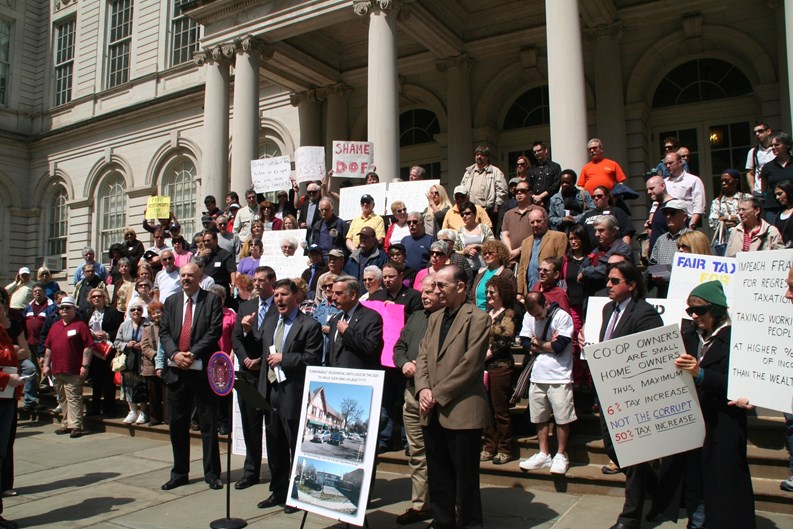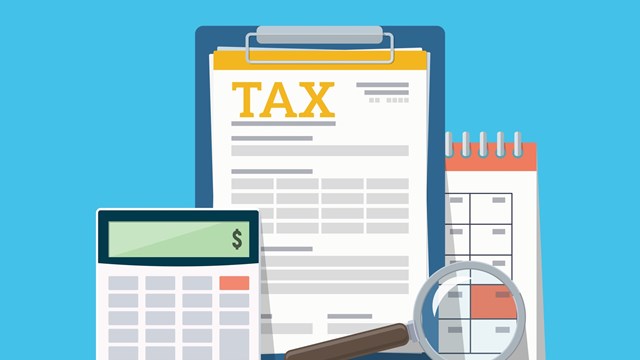Back in 2011, New York City’s Department of Finance released its annual property assessments for residential buildings in all five boroughs, and co-op and condo residents in Northeastern Queens were not happy with the results. The valuations were comically high, double- and triple-digit increases, setting up huge city property tax increases.
Communities immediately pushed back, but not by themselves. The effort instead was led by The Presidents Co-op and Condo Council, a Queens advocacy group that represents over 100,000 shareholders, unit owners, and their families. Leaders of the council, which include co-presidents Warren Schreiber and Bob Friedrich, were able to meet personally with DOF officials to contest the assessments.
“We were told in one instance that in previous years they were undervaluing us, and they had no data to back it up,” said Schreiber. So, the organization called up John Liu, the city’s comptroller at the time. Liu, who already had a working relationship with the Presidents Council, ended up auditing the DOF and found that its assessments in Northeastern Queens were indeed erroneously high. In the years since, assessment increases for condos and co-ops in the area have stayed below 10 percent.
From tax law to housing rights, co-ops and condos are unique legal entities. They’re not single-family homes, and they’re not rental properties either—which makes it even more necessary to make your voice heard on a local, state, and even federal level. There may be no one else out there to go to bat for your building.
A few citywide organizations do exist, like the Council of New York Cooperatives and Condominiums, and there are smaller civic associations buildings can and should become involved with, but few buildings participate in local or neighborhood groups like the Presidents Council that work specifically on co-op and condo issues. Here are some tips on how to get started on making friends and influencing people.
1. Get Advice From Existing Groups
Groups like the Presidents Council are a good start. Find out what other condo and co-op leaders are doing, and see how you could do the same thing in your area. A local active group can make all the difference when it comes to getting that traffic light replaced, or that construction permit for a new parking lot. Local co-op and condo groups from the Bronx have looked to their counterparts in Northeastern Queens as a model and started to create sister groups for the large co-op communities in the Bronx.
2. Build Relationships
Invite your state senator, city council member, or borough president to your building. Elected officials are usually desperate to get face time with potential voters, and even more eager if they know your building is active and well-informed. The last thing a politician wants to look like is someone who’s behind the ball. Reach out to the local precinct, community board, civic groups, and local businesses. You can never have too many friends in the public arena.
3. You Don’t Always Need to Pick a Fight
“It’s really important co-ops and condos establish really good relationships with elected officials. People have to be able to talk. You don’t want to go into full attack mode all the time and go straight to the press,” said Schreiber. Elected officials will appreciate that you spared them any embarrassment, and maybe more amenable to work with. It’s often the case that local office holders simply need to be educated on how certain issues are impacting your building. Before leveraging the local newspapers and blogs, have an adult conversation first. Politicians will take note, and that could help when the next crisis hits. Of course, you always have the local media if you need them (it doesn’t hurt to cultivate relationships with media as well).
4. Stay Informed
The number of co-ops and condos in the country continues to grow, but questions about how they’re treated legally and financially still linger. For instance, in New York City, co-ops and condos do not have a distinct tax classification. They’re lumped in with rental properties instead, which in part led to the 2011 showdown between the city and shareholders in Queens.
In Washington, the Federal Housing Administration can sometimes be equally clunky when it comes to financing and tax structures for condos and co-ops. Much like the DOF in New York, most government agencies, local and federal, cater policies either to single-family homes or rentals, and it’s not uncommon for cooperatives and associations to get lost in the mix. Taking political action requires a working knowledge of the policies and decisions from Congress, Albany and City Hall, and what they actually mean for your own community. Listen to your neighbors, keep up with the news, and find some smart people around who can help; an accountant with a law degree would be ideal, but a like-minded peer who cares deeply about the issues you’re fighting for works well, too.
Tom Lisi is associate editor at The Cooperator.







Leave a Comment